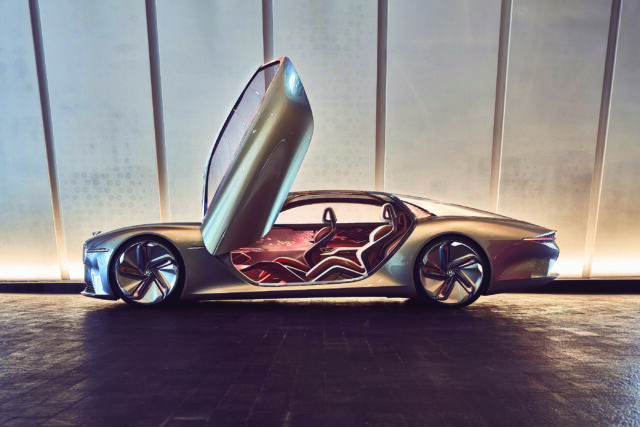
By Gabrielle Echevarrieta
A 100-year-old institution in the auto world, Bentley Motors has evolved within a changing world while remaining true to its bold, elegant aesthetic that can be recognized anywhere on the road. In response to climate change, one of the greatest threats to global health, the brand has gone where no luxury automaker has gone before. Bentley has recently unveiled the “Beyond100” strategy, a comprehensive plan to become fully climate-neutral by the year 2030. From solar power to beehives and everything in between, Purist speaks to Peter Bosch, member of the board for manufacturing at Bentley Motors Ltd., about these ambitious goals.
PURIST: Bentley is one of the first luxury auto manufacturers dedicated to sustainability. What made the company decide to forge this new path?
Peter Bosch: In 2019, Bentley celebrated its centenary year, which provided the perfect platform to celebrate our history and reflect on our future. Our focus now is on a future driven by new technologies, materials, fuels and skills, in the pursuit of a progressive new world, one in which the highest levels of luxury mobility are achieved with sustainable methods.
PURIST: How will Bentley’s production practices change in accordance with the Beyond100 strategy? What steps will be taken to ensure eco-consciousness?
PB: The Bentley factory, in Crewe, in Cheshire, England, is already carbon-neutral for car production, with 100 percent of our energy sourced from sustainable sources, including our own 31,000 solar panel system. Since 2010, the CO2 emissions per vehicle manufactured have fallen by 99.5 percent, and water usage has fallen by 55 percent over the same period. On-site logistics vehicles are now either electric or fueled with hydrotreated vegetable oil (HVO) fueling facilities, an ultra-low emissions alternative to conventional fuels. We have also increased the recycling of our waste to over 99 percent, and we continue to source energy-efficient equipment and adopt new technologies as they become available.
PURIST: Tell us about the 300,000 British honeybees (Apis mellifera) living in five hives at the factory.
PB: The bees serve as pollinators for local crops and flowers in the Cheshire countryside, including our own wildflower meadow. In recent months, we also installed boxes for both birds and bats, and ground-level boxes for hedgehogs. Encouraging biodiversity in and around the factory helps us support the local environment and its wildlife—and a final benefit of our bees is the delicious Bentley honey they produce every summer.
bentleymotors.com



